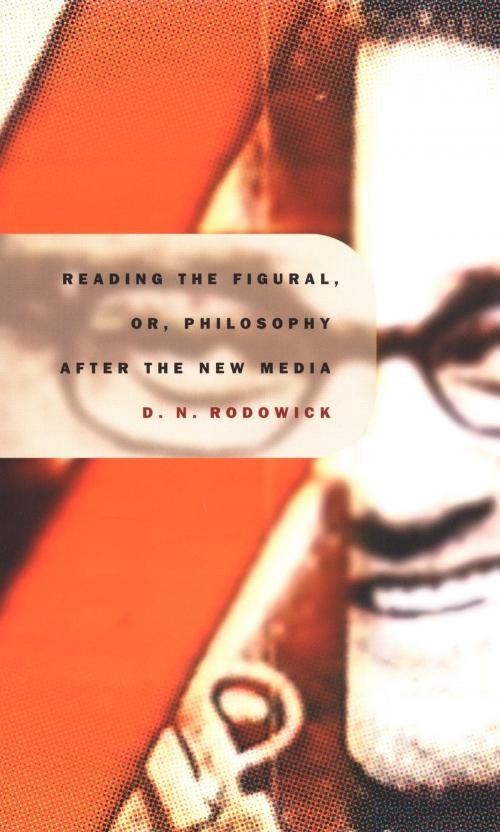Reading the Figural, or, Philosophy after the New Media
Nonfiction, Religion & Spirituality, Philosophy, Aesthetics, Social & Cultural Studies, Social Science| Author: | Stanley Fish, Fredric Jameson, David Rodowick | ISBN: | 9780822380764 |
| Publisher: | Duke University Press | Publication: | September 11, 2001 |
| Imprint: | Duke University Press Books | Language: | English |
| Author: | Stanley Fish, Fredric Jameson, David Rodowick |
| ISBN: | 9780822380764 |
| Publisher: | Duke University Press |
| Publication: | September 11, 2001 |
| Imprint: | Duke University Press Books |
| Language: | English |
In Reading the Figural, or, Philosophy after the New Media D. N. Rodowick applies the concept of “the figural” to a variety of philosophical and aesthetic issues. Inspired by the aesthetic philosophy of Jean-François Lyotard, the figural defines a semiotic regime where the distinction between linguistic and plastic representation breaks down. This opposition, which has been the philosophical foundation of aesthetics since the eighteenth century, has been explicitly challenged by the new electronic, televisual, and digital media. Rodowick—one of the foremost film theorists writing today—contemplates this challenge, describing and critiquing the new regime of signs and new ways of thinking that such media have inaugurated.
To fully comprehend the emergence of the figural requires a genealogical critique of the aesthetic, Rodowick claims. Seeking allies in this effort to deconstruct the opposition of word and image and to create new concepts for comprehending the figural, he journeys through a range of philosophical writings: Thierry Kuntzel and Marie-Claire Ropars-Wuilleumier on film theory; Jacques Derrida on the deconstruction of the aesthetic; Siegfried Kracauer and Walter Benjamin on the historical image as a utopian force in photography and film; and Gilles Deleuze and Michel Foucault on the emergence of the figural as both a semiotic regime and a new stratagem of power coincident with the appearance of digital phenomena and of societies of control.
Scholars of philosophy, film theory, cultural criticism, new media, and art history will be interested in the original and sophisticated insights found in this book.
In Reading the Figural, or, Philosophy after the New Media D. N. Rodowick applies the concept of “the figural” to a variety of philosophical and aesthetic issues. Inspired by the aesthetic philosophy of Jean-François Lyotard, the figural defines a semiotic regime where the distinction between linguistic and plastic representation breaks down. This opposition, which has been the philosophical foundation of aesthetics since the eighteenth century, has been explicitly challenged by the new electronic, televisual, and digital media. Rodowick—one of the foremost film theorists writing today—contemplates this challenge, describing and critiquing the new regime of signs and new ways of thinking that such media have inaugurated.
To fully comprehend the emergence of the figural requires a genealogical critique of the aesthetic, Rodowick claims. Seeking allies in this effort to deconstruct the opposition of word and image and to create new concepts for comprehending the figural, he journeys through a range of philosophical writings: Thierry Kuntzel and Marie-Claire Ropars-Wuilleumier on film theory; Jacques Derrida on the deconstruction of the aesthetic; Siegfried Kracauer and Walter Benjamin on the historical image as a utopian force in photography and film; and Gilles Deleuze and Michel Foucault on the emergence of the figural as both a semiotic regime and a new stratagem of power coincident with the appearance of digital phenomena and of societies of control.
Scholars of philosophy, film theory, cultural criticism, new media, and art history will be interested in the original and sophisticated insights found in this book.















